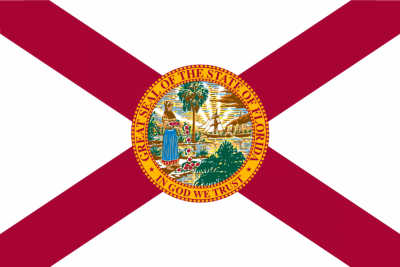Florida

Florida offers both statutory and common law protection against use of a person’s name or likeness without consent. The statute was passed in 1967 and expressly leaves in place the common law right of privacy.
Statute
YES.
Florida law has a statute that prohibits the unauthorized publication or other public use of a person’s name or likeness “for purposes of trade or for any commercial or advertising purpose” without consent.
Common Law - Right of Publicity
LIKELY YES
Courts have treated the misappropriation tort akin to a right of publicity, and in dicta the Supreme Court of Florida indicated that “Florida recognizes both a statutory and common law right of publicity.” Weaver v. Myers, 229 So.3d 1118 (Fla. 2017).
The common law right of publicity does not seem to differ from the privacy-based misappropriation tort. It is uncertain whether it is limited by the boundaries of the statutory right. Some cases suggest it is broader, others that it is bound. See, e.g., Lane v. MRA Holdings, 242 F. Supp.2d 1205, 1220 (M.D. Fla. 2002). The statute itself expressly leaves additional common law actions and remedies in place, suggesting that the common law should not be interpreted as identical to the statute.
Common Law - Right of Privacy-Appropriation Tort
YES
The Florida statute specifically states that it does not preempt any “remedies or rights” under the common law for the invasion of privacy. Florida has long recognized the right to privacy, and its appropriation branch. Some federal courts have suggested that the common law tort’s elements are identical to those under the statute.
Cason v. Baskin, 20 So. 2d 243 (Fla. 1944)
Loft v. Fuller, 408 So. 2d 619 (Fla. Ct. App. 1981)
Almeida v. Amazon.com, Inc., 456 F.3d 1316 (11th Cir. 2006)
Coton v. Televised Visual X-Ography, Inc., 740 F. Supp.2d 1299 (M.D. Fla. 2010)
Post-Mortem Right
YES
Florida law provides a statutory post-mortem term of 40 years. The common law right to privacy appears to terminate with death, although dicta in Weaver v. Myers suggests that the common law right survives death.
Weaver v. Myers, 229 So.3d 1118 (Fla. 2017)
Loft v. Fuller, 408 So. 2d 619 (Fla. Ct. App. 1981)
Limits on Right
Does the law require the plaintiff or identity-holder to be a celebrity or have a commercially valuable identity?
UNCLEAR
Neither the common law nor statute require a claimant to have commercial value.
At least one Florida circuit court decision, Bilotta v. Citizens Info. Assocs., 2016 Fla. Cir. Lexis 9147 (Fla. Cir. 2016), has suggested that plaintiff may need to have extrinsic commercial value, but I think this conclusion is an outlier.
Cason v. Baskin, 20 So. 2d 243 (Fla. 1944)
Bello
Does the law protect persona?
UNCLEAR
The statute only enumerates “name, portrait, photograph or other likeness,” but the common law may be broader and no cases seems to have addressed the question of whether other indicia of identity could form the basis of a claim.
Is Liability Limited to Uses on Commercial Advertising or Commercial Speech?
MAYBE
The Florida Supreme Court has limited the statute only to uses that “directly promote a product or service,” and has concluded that a use in a motion picture is not a use for a “commercial purpose” as required under the statute. Given several courts treatment of the statute and common law as requiring similar elements a similar requirement may exist at common law as well.
The Florida Supreme Court suggested in Tyne v. Time Warner Entertainment that this limited reading of a commercial purpose may be constitutionally required by the First Amendment.
Tyne v. Time Warner Entertainment Co., 901 So. 2d 802 (Fla. 2005)
Fuentes v. Mega Media Holdings, Inc., 721 F. Supp. 2d 1255 (S.D. Fla. 2010)
Statutory Defenses
The statute does not apply to:
• Uses in newspapers, magazines, books, and news
The statute is ambiguous about whether exempted uses include advertisements for those uses, such as an advertisement for a newspaper or television show. If it does, than the language of the exemption may be broader and also exempt any uses that are not “for advertising purposes. See Fla. Stat. § 540.08(4)(a).]
• Uses in connection with the “resale or other distribution of literary, musical, or artistic productions or other articles of merchandise or property where such person has consented” to the initial use of the person’s name or likeness was consensual.
• Photographs where the person is unnamed and solely a member of the public
First Amendment Analysis
The Florida Supreme Court has suggested that the right of publicity is limited by the First Amendment and has applied a narrowed construction of the statutory right to uses that directly promote a product or service. In at least one case, promotion of noncommercial speech has been read to fall within the statute’s purview.
The Eleventh Circuit Court of Appeals in which Florida sits has had several occasions to consider the interplay between the First Amendment and the right of publicity and has emphasized that the newsworthiness defense protects First Amendment interests.
In Toffoloni v. LFP Publishing Grp., the 11th Circuit held that the publication of nude photos of a murder victim was not newsworthy in the context of a claim under Georgia law.
Tyne v. Time Warner Entertainment Co., 901 So. 2d 802 (Fla. 2005)
Gritzke v. M.R.A. Holding, LLC, 2002 WL 32107540 (N.D. Fla. 2002)
Toffoloni v. LFP Publ’g Grp., 572 F.3d 1201 (11th Cir. 2009) (in context of Georgia law)
Other Commentary
The Florida right of publicity statute provides a civil penalty of up to $1,000 for the use of the name or likeness of a member of the armed forces, but does not provide a similar right to civilians.
